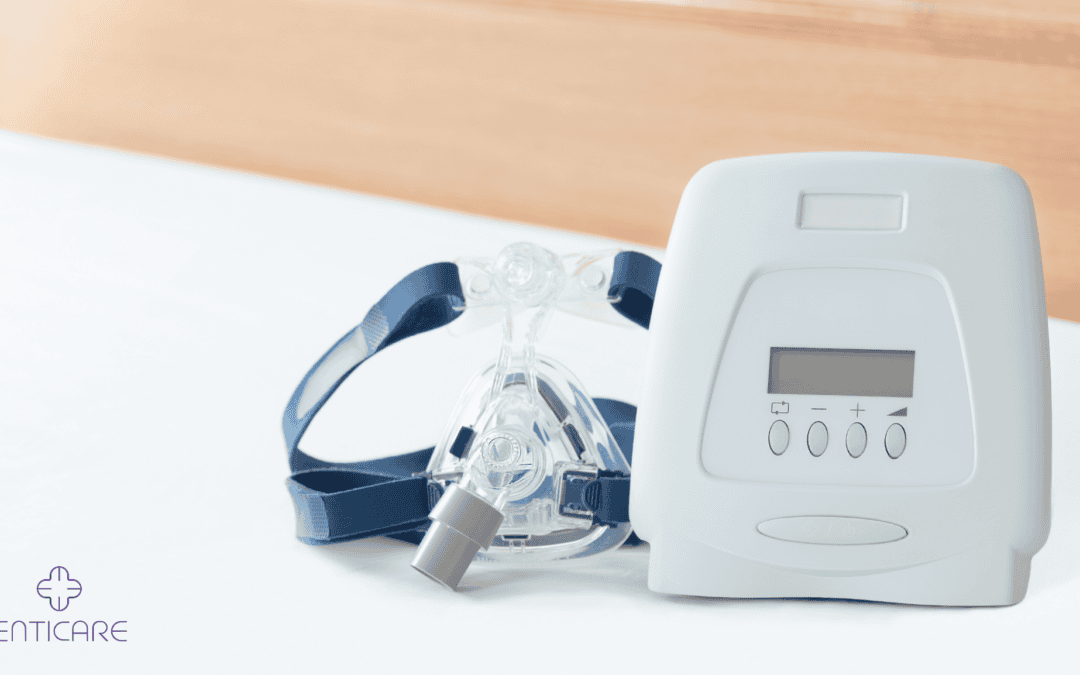Struggling to understand the difference between ASV vs. BiPAP therapy for sleep apnea?
Sleep apnea disrupts sleep, impacting your health and well-being. CPAP (Continuous Positive Airway Pressure) and BiPAP (Bi-Level Positive Airway Pressure) machines are lifesavers for many, keeping airways open during sleep. BiPAP therapy provides two distinct air pressure levels: one for inhalation and one for exhalation. CPAP machines and CPAP therapy are also crucial in treating sleep apnea, stabilizing breathing, and addressing discomfort associated with pressurized air. However, terms like ASV (Adaptive Servo-Ventilation) can add confusion. This blog sheds light on ASV therapy, exploring its functionalities and key differences compared to traditional BiPAP machines.
Both ASV and BiPAP machines are effective tools in sleep apnea treatment, but their functionalities differ. Delving into the details of ASV therapy and its distinctions from BiPAP will empower you to discuss treatment options with your doctor for optimal sleep apnea management.
Understanding Adaptive Servo Ventilation (ASV) Therapy
ASV (Adaptive Servo-Ventilation) is an advanced form of BiPAP therapy that automatically adjusts pressure settings based on your real-time breathing needs during sleep, with minute by minute comparisons. It is designed to treat conditions such as obstructive sleep apnea and central sleep apnea. Here’s a breakdown of its key features:
- Pressure Monitoring: The ASV machine continuously monitors your breathing patterns, including inhalation effort, negative inspiratory force, and airflow. ASV can treat central sleep apnea by monitoring and adjusting air pressure to stabilize breathing.
- Adaptive Pressure Adjustments: Unlike traditional BiPAP with pre-set pressure levels, ASV detects changes in your breathing patterns and automatically adjusts the pressure to:
- Increase pressure**:** During episodes of hypopnea (reduced airflow) or apnea (complete airway closure), the ASV increases pressure to keep your airway open, as well as ensure the proper amount or exchanged tidal volume inside of a minute of breathing.
- Decrease pressure: During exhalation, the ASV might lower expiratory pressure to ease breathing and improve comfort. ASV can also help manage complex sleep apnea by adjusting pressure settings to regularize breathing.
- Focus on Comfort and Efficacy: By automatically adjusting pressure, ASV aims to maintain airway patency while minimizing pressure discomfort often associated with fixed-pressure BiPAP, all to ensure the proper amount of airflow every minute of use.
ASV vs. BiPAP: Key Differences
| Feature | ASV | BiPAP |
| Pressure Delivery |
Adaptive: Continuously adjusts pressure based on real-time breathing needs |
Fixed: Delivers two pre-set pressure levels – higher for inhalation, lower for exhalation. Advanced BiPAP machines feature variable positive airway pressure (VPAP) to promote a natural breathing pattern |
| Suitability |
Moderate to severe sleep apnea with variable breathing patterns (central apneas, mixed apneas) |
Moderate to severe sleep apnea, particularly with obstructive apneas, obstructive sleep, and obstructive sleep apnea |
| Breathing Assistance |
Offers more dynamic, adaptive, and personalized support for both inhalation and exhalation |
Delivers consistent support for inhalation and exhalation based on pre-set pressures |
| Comfort Considerations | Aims to minimize central apneas and pressure discomfort with automatic adjustments |
This may cause discomfort due to constant pressure switching, especially during exhalation |
Who Might Benefit from ASV Therapy for Central Sleep Apnea?
ASV therapy might be particularly suitable for individuals with:
- Mixed Sleep Apnea: This condition involves both obstructive (caused by a blocked airway) and central apneas.) (caused by the brain not sending proper breathing signals). ASV can be beneficial for a range of sleep disorders by providing adaptive support.
- Variable Breathing Patterns: If your breathing patterns fluctuate significantly during sleep, the automatic adjustments of ASV can offer more tailored support. ASV helps keep the upper airway open to prevent apneas.
- Apneas Not Controlled with BiPAP: For individuals who still struggle with central apneas and/or hypopneas not controlled with traditional BiPAP.
Consulting Your Doctor is Key
The choice between ASV and BiPAP therapy depends on your individual sleep apnea condition. Here’s why consulting your doctor is crucial:
- Sleep Study Diagnosis: A sleep study helps diagnose the type and severity of your sleep apnea and determine the most suitable therapy approach (ASV, BiPAP, or CPAP).
- Treatment Plan Development: Your doctor will develop a personalized treatment plan based on your sleep study results and your specific needs. This might involve ASV therapy or a different option depending on your diagnosis.
- Monitoring and Adjustments: Regular follow-up appointments with your doctor are essential to monitor your progress and adjust pressure settings or potentially switch between ASV and BiPAP therapy if needed.
- PAP Therapy Options: Various PAP therapy options are available to treat sleep apnea, including CPAP, APAP, BiPAP, and ASV machines. Choosing the right one is crucial for effective treatment and better health outcomes.
Understanding the functionalities and key differences between ASV vs. BiPAP empowers you to discuss treatment options with your doctor for optimal sleep apnea management. Both ASV and BiPAP offer valuable tools in the fight against sleep apnea. By prioritizing open communication with your doctor and understanding your specific needs, you can achieve a restful night’s sleep and improved health outcomes. And if you have any questions, don’t hesitate to contact Enticare, our expert team is here to assist you every step of the way.

